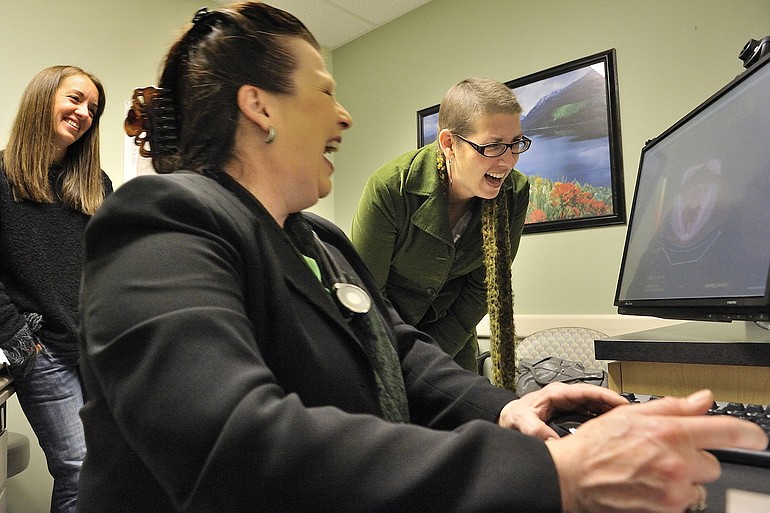Krista Colvin slowly wakes from surgery. She slips in and out of consciousness. In this dreamy state, she thinks more about when she’ll get to see her family than about the fact that she no longer has breasts. She had time to work through the impending physical loss in the months leading to her mastectomy.
Krista, 43, was diagnosed in March with cancer. Now surgeons have removed her right breast, which had two tumors, as well as cancerous lymph nodes. Because Krista carries a gene mutation that increases the chance of cancer recurring, her healthy breast was removed, too.
After she moves out of the surgical recovery area and into a hospital room overlooking Mount Hood, her family arrives from their home in Camas. Her husband, Mike, ushers Wes, 10, and Annie, 8, into the room. They catch Krista off-guard. She’s still hooked to oxygen and an IV. Her face is pale. She’d rather her children didn’t see her this way, but she can’t help but feel glad they’re there.
She smiles.
When Wes sees his mother attached to so many tubes, tears flood his eyes. Annie reacts differently. She can’t contain her curiosity.



